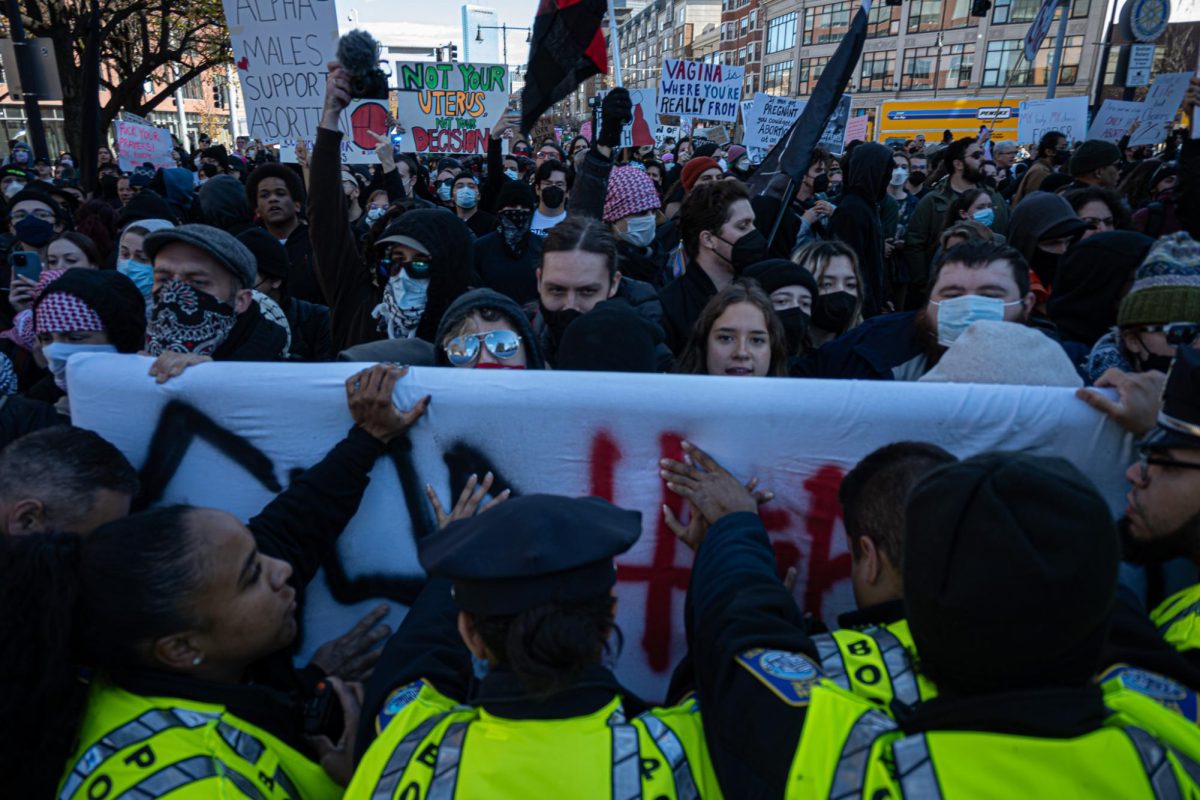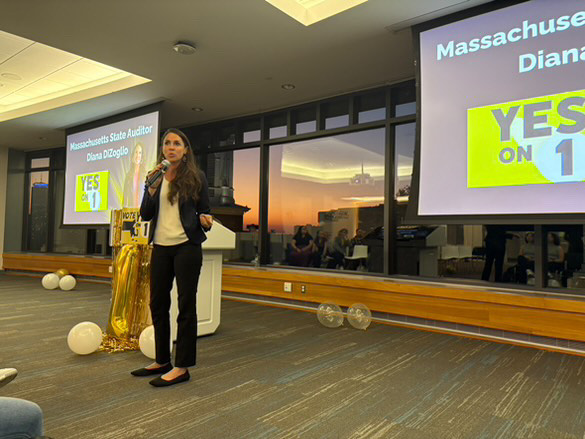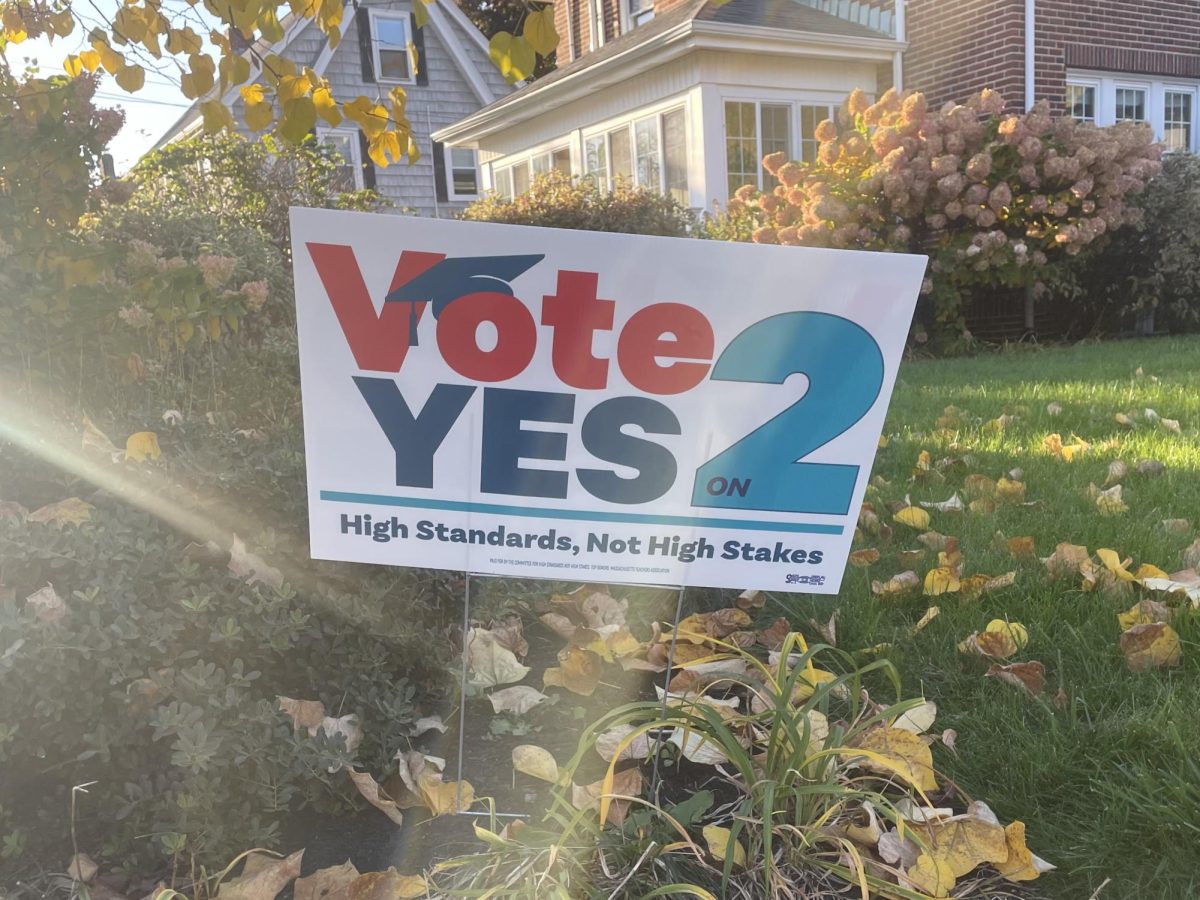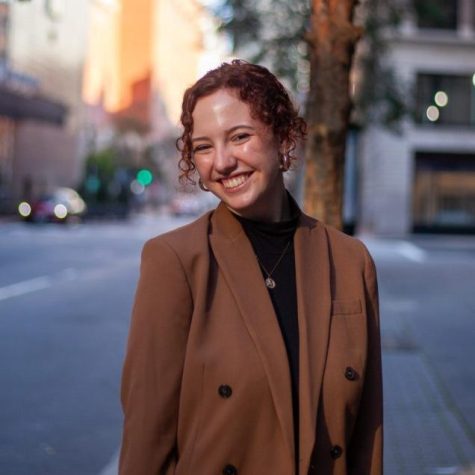People from all over Massachusetts gathered online to listen to Senators Elizabeth Warren and Edward Markey speak in favor of the ROE Act, which has found a new burst of support since the Supreme Court appointment of Justice Amy Coney Barrett.
The virtual rally took place Oct. 27 at 7 p.m. Participants were welcomed over Zoom, as well as on Facebook Live. Several groups worked together to make this event a reality, particularly the American Civil Liberties Union of Massachusetts and NARAL Pro-choice Massachusetts.
The ROE Act initially appeared in the Massachusetts Senate in 2019, presented by Senator Harriette Chandler, but little has been done to push the document forward since then. Since 2019, it has remained in the hands of the Judiciary Committee.
The ROE Act was created to expand access to abortion, allowing minors to seek abortions without parental consent or approval from a state judge. Abortions after 24 weeks in cases of fatal fetal abnormalities or a threat to the mother’s physical or mental health would be permitted throughout Massachusetts through this legislation.
“It is time to abolish these discriminatory barriers to care. It is time to ensure reproductive and healthcare freedom for all,” Markey said at the event.
The confirmation of Barrett to the Supreme Court has sparked activists across the nation to demand further action from states to protect the right to abortion. While Barrett did not explicitly answer how she would rule on abortion during her confirmation hearing, her past of serving in the University of Notre Dame’s “Faculty for Life” group and saying she opposed “abortion on demand” in a newspaper ad seems to tell another story to many.
Warren referred to Barrett as “illegitimate,” and stressed the danger that women face if the right to abortion across the country if Roe v. Wade is overturned.
Both Markey and Warren emphasized that access to safe and legal abortions is vital for individuals of all economic statuses, but that without Roe v. Wade, many women of color will be disproportionately affected.
Black and Hispanic women are more likely to experience an unplanned pregnancy compared to their white counterparts. According to the Guttmacher Institute, the abortion rate of Black women was 27 for every 1,000 women of reproductive age in 2017. In comparison, the rate for Hispanic women was 18 and 10 for white women
“In those nearly fifty years since (Roe v. Wade) became law, we’ve seen just how foundational reproductive freedom is to a person’s health and economic security,” said Warren. She added that true equality is not feasible without access to both abortions and contraceptives.
“For a woman working two jobs with two kids in daycare, an unplanned pregnancy can upend budgets that are already stretched too far,” she said.
“Massachusetts laws are outdated and we need to do better because no minor or adult should be forced to carry an unwanted or unviable pregnancy,” said Allison Fernandez, a senior at Suffolk University and president of Suffolk Pro-Choice, who attended the virtual rally in support of the ROE Act.
Fernandez, along with hundreds of Zoom participants, hoped that the rally would bring much needed attention to the changes that many feel are vital to a more free and equal society.
Markey reminded audience members that Massachusetts was the first state to legalize same sex marriage and gave rise to both the abolitionist and the suffragette movement.
“We need Massachusetts to lead the way,” Markey said.
Fernandez agreed.
“Young people need the freedom to make their own decisions about their health and future,” said Fernandez. She emphasized that lack of access to abortions does not only affect women, but anyone who is able to carry a pregnancy, including trans and non-binary individuals.
While politicians and activists alike acknowledge that passing the ROE Act may be an uphill battle, Warren and Markey said that now is the time to stand up and fight for the right to safe and legal access to abortion.
“I know this is a hard time for us, but this is not a moment to back down. This is a moment to fight back,” said Warren. “It is our time to stand up for basic dignity, for safety, and for equality for women all across Massachusetts.”















